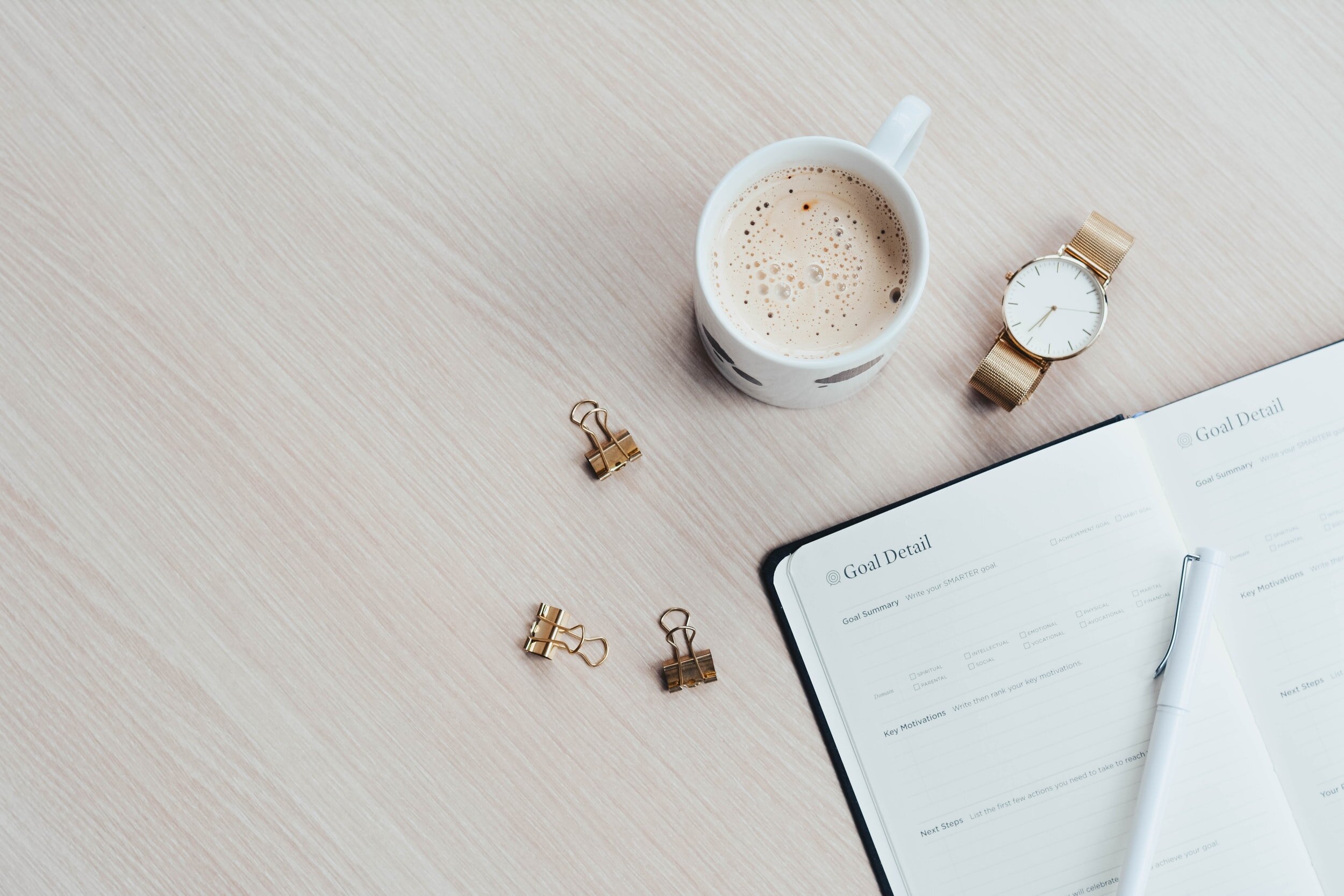How Routine Can Aid Our Mental Health
Mental ill health can leave us feeling drained, buried, trapped or out of control. Recovery from mental ill health can be tough work. Establishing a routine can firstly, and really importantly, give us back a sense of control. We’re taking the reins again, and this immediately disempowers mental illness.
Build in the most important things
Creating a routine also helps us consciously decide what’s important, and build those things into our daily lives. We need time to rest, relax and have fun, as well as get important jobs done. What is it that you want to do more of but never seem to get round to? Carving out an hour of your day just to sit down and read, or just chill out with your cat, or do some exercise makes it more likely that we will actually do that.
Bare in mind, though, that things are bound to pop up - a job we thought would take less than an hour might end up taking two, we might get a phone call that eats into part of our day. Go easy on yourself and think of these unexpected interruptions/delays as ways of helping you to realise which parts of our routine we need the most. Were you particularly dismayed at having your reading time eaten into, your gym session, or was it your dedicated TV time you missed the most? Try and switch things around so that you can factor these things in somewhere else.
Building in bits of self-care to our daily routine helps us to keep up with these things and they become habits. Then we’re much more likely to just do them because they’ve become such a normal part of our day.
Think about how you spend your evening
Sleep plays an important role in our mental health. We really benefit from having the same amount of sleep each night, as well as going to bed and waking up at the same time each day. Loads of us already know this, but it’s really easy to say that and often really difficult to actually manage to do.
In order to get a good sleep, we often need some time to wind down. You might do this already without realising it - do you always watch TV after dinner until you find yourself falling asleep? We all need different amounts of time to wind down. I know I need to stick to a fairly long-winded night-time routine otherwise I barely sleep at all - I have a chamomile tea, get into a warm bath and read, then do a quick ten minute yoga stretch, and then I’m just about ready to get into bed and read for a bit longer… It can take a while for us to get into the habit of these routines because it might sound like quite an effort or too time consuming. It’s so worth it though, that once we’ve been doing it for some time (even if we’ve had to force ourselves to do it for a while), we wouldn’t be without it, because it makes life much easier, and our moods much better! Have a think about what you find really relaxing and what helps you to sleep at night.
Reduces Stress
When we’re not well, it can be hard to think about what we need to do, or what to do first. Sometimes we just draw a blank and can’t think what we should do once we’ve woken up. Other times we might feel like our mental ‘to-do’ list is so long that it’s really overwhelming, and we don’t end up doing anything. When we’re well, we can get up and we might have breakfast first, then we know we brush our teeth after breakfast and have a shower. Whereas writing these things out so that we can physically see what we can do next helps us when we’re not feeling so well. A daily routine can help alleviate stress by showing us a step-by-step of our day. We plan this in advance, and a new day seems much less overwhelming once it’s arrived.
Eating and exercising
These are two very important factors that affect our mental health. A lot of the time, once we feel well enough to start exercising and cooking for ourselves again, it’s hard to find the time to do these things. We can start making time to prepare food, cook and then clean up afterwards. We need to remember to build in time to get to and from the place we’ll exercise (starting off by working out at home can help). By building ourselves a daily routine it can help us to make time for these things and our mental health will steadily improve because of it. If we feel particularly up for cooking one day, if might be an idea to cook up a batch of something and freeze it, so that if we’re really not feeling it one day, we can just get something healthy out of the freezer instead of having to cook - this is particularly useful if you live on your own
The predictability and choice that come with creating a daily routine can make us feel settled, when lots of other things are unsettling and unpredictable. Be careful not to berate yourself if you do a few days of sticking to your routine and then find you’re really not up for cooking one day, or you miss your daily walk. This is just to give you some structure and it’s meant to help - if you start to find this more stressful than it is helpful then ease up a little.
